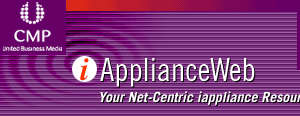



 |
 |
|
|
 |

|
||
|
|
|
|
|||

|
Sun's McNealy says Microsoft may 'hijack' XMLBy SAN FRANCISCOIn his keynote Tuesday (March 26) at the JavaOne developers conference, Sun Microsystems Inc. chief executive Scott McNealy charged that top competitor Microsoft Corp. may be trying to 'hijack' the Extensible Markup Language by creating proprietary extensions or implementations of it in Windows. In a question-and-answer session following the keynote, Sun executives said they were raising a warning flag, but had no hard evidence Microsoft was creating such non-standard extensions. Neither the World Wide Web Consortium the group responsible for the XML standard nor Microsoft was able to respond by press time. "Are we going to be able to protect these interfaces done by standards bodies that could be hijacked? Be aware of a large monopolist hijacking APIs," said McNealy in his keynote. "When offered free development tools, don't go for an extension that is not an open standard." In a press conference after the keynote, an otherwise subdued McNealy briefly showed some of his old competitive fire when asked whether he had any evidence Microsoft might be altering XML. "Excuse me for being skeptical of Microsoft attitudes, but they were contractually obligated [to Sun] to stay compatible with Java and they didn't. What commitment do they have to whom about XML? Who is going to do for XML what we did for Java?" he said, referring to a court case in which McNealy claimed Sun won $20 million because Microsoft delivered products with a non-compatible implementation of Java. "Do we have evidence? Just the absolutely unchanging behavior from them since day one," he said. Sun's warning was "a cautionary note," said Richard Green, general manager of Sun's Java and XML business, because Microsoft has said its strategy for building reusable software code in its .Net products is based on standards such as XML. "When you focus on XML as the interoperability technique, we are just very careful about monitoring that," Green said. Dietary restrictions In his keynote, McNealy also skewered local grocery chain Safeway for operating a Web site that is not accessible without Microsoft's Internet Explorer browser. "This is Safeway. This is where you get your food," he said. McNealy appealed to the several thousand software developers filling the Moscone Center here to test their applications carefully for compatibility at the server end and on several browsers, taking a familiar position against Microsoft and as a defender of open software environments. "Twenty years ago there were hundreds and hundreds of developer communities. Every binary architecture and microprocessor had one. Now we are really down to the open Java community and .Net," he said. "We need you all to be disciples. I can't leave my kids to a world of control-alt-delete and MSN," he said. Separately, Sun announced in the keynote that the company would alter the contracts around its Java Community Process Program so that Sun or any other Java developer could provide Java products on an open-source basis, opening the door to closer collaboration with the Apache Software Foundation, an open-source group of Web server developers. Under the agreement, companies developing reference designs for JCP groups can supply their code on an open-source basis, even if the standard has not yet reach a public review stage. Sun also committed to provide free support to open-source and academic developers for any open-source Java code it releases. "I believe we have just made the Java community much wider and broader and we will move Java forward because of this," McNealy said. |
|
||||||||

Terms and Conditions Privacy Statement |
||||||||||